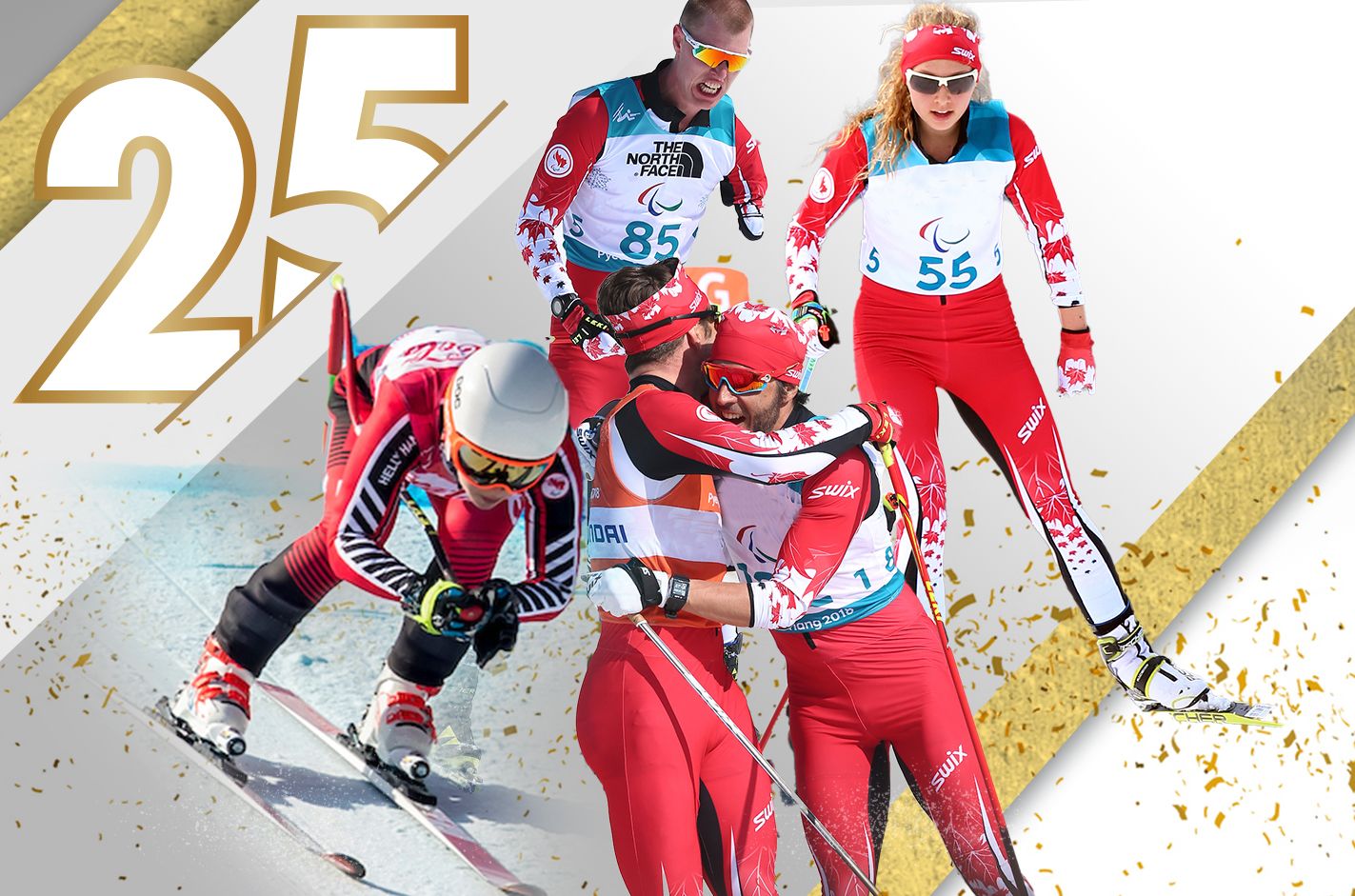Celebrating 25 years of Para sport: Canada revels in best-ever Paralympic Winter Games in 2018
Para nordic skiers lead Canadian Paralympic Team to record 28 medals

Led by veterans Brian McKeever and Mark Arendz as well as rookie Natalie Wilkie, Canada’s Para nordic skiers collected more than half the country’s medal count at the 2018 Paralympic Winter Games in PyeongChang, South Korea.
Those numbers generated a record medal count for Canada at the Winter Games which were first launched in 1976. Canada earned eight gold, four silver and 16 bronze for third overall in the medal rankings. In 2014, the Canadians were also ranked third with 7-2-7 but were far behind leading Russia compared to only eight behind the leading Americans in 2018.
On the competition field, the big story for Canada was the emergence of the Para nordic team as a world superpower.
McKeever and his guides Graham Nishikawa and Russell Kennedy stepped onto the podium four times with three gold and a bronze in the open relay. That made McKeever, competing at his fifth Games, Canada’s most successful winter Paralympian of all time with 17 medals including 13 gold. Arendz won a team record six medals in PyeongChang with a gold, two silver, and three bronze.
“I wanted nothing more than to hear my country’s anthem played,” said Arendz after his victory in the 15-kilometre standing biathlon. ‘’I’ve seen the maple leaf on top of the podium three times this week, but to finally have it behind the top step of the podium for me is an amazing feeling.”
McKeever and Arendz also bookended the Games with their flag bearer duties, McKeever taking the honours for the Opening Ceremony while Arendz carrying the flag for Canada at the Closing Ceremony.
Also in Para nordic skiing, then 17-year-old Natalie Wilkie burst on the international stage with a triple medal performance (one of each colour) less than two years after losing four fingers on her left hand in a woodworking class in high school.
Collin Cameron, Brittany Hudak, and Emily Young were fellow first-time Paralympic medallists, with Cameron a two-time individual bronze medallist and Hudak and Young each adding a bronze of their own. Cameron also was part of the third-place open relay team while Young contributed to the mixed relay team’s silver medal.
Besides Wilkie, another new teenage star was also born at the Games, on the slopes. Mollie Jepsen won four medals, including gold in the women’s standing super combined, in Para alpine skiing.
“When you have a good thing going on a hill – the crowd, good runs – it makes you want to attack more each day,” said Jepsen, 18 years old at the time. “It’s exciting.”
That highlighted a 10-medal performance on the hills for Canada with Mac Marcoux and his guide Jack Leitch as well as Alana Ramsay adding two podiums apiece, Kurt Oatway winning a gold, and Alexis Guimond taking home a bronze.
Canada also won the silver medal in Para ice hockey after a 2-1 overtime loss to USA in the championship game. In wheelchair curling, Canada bounced back from a tough quadrennial to clinch the bronze.
In total, six teenagers won medals in PyeongChang, a sign there could be more record breaking-performances at the Winter Games to come.
This year, the Canadian Paralympic Committee and Pfizer Canada are celebrating 25 years of supporting and promoting the Paralympic Movement together. Throughout 2021, we will look back on special sporting moments and milestones from each year of the partnership.
Click here to read each moment so far.
"*" indicates required fields
"*" indicates required fields